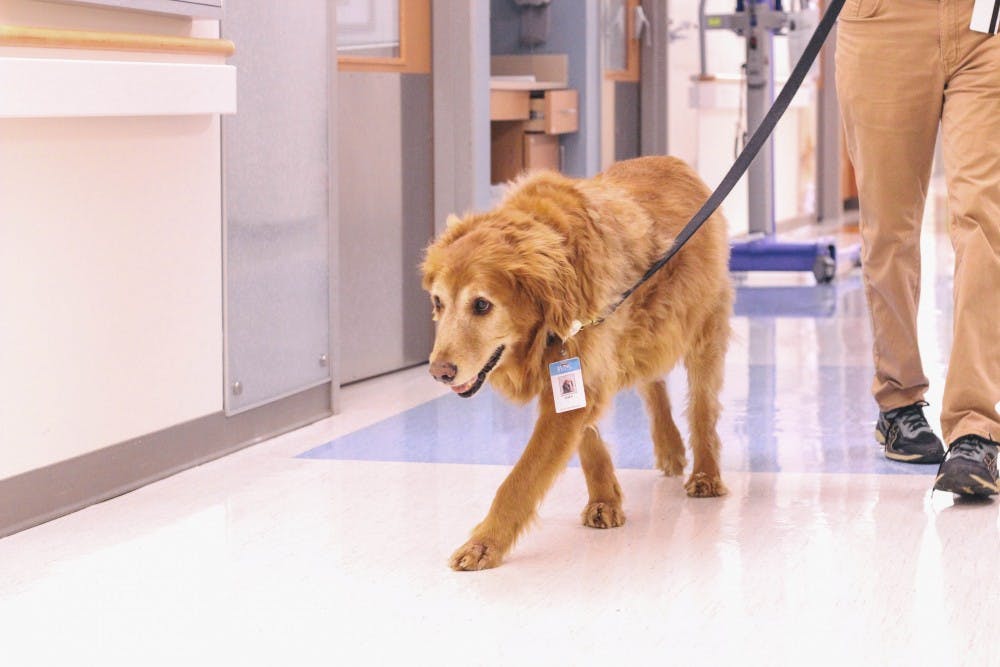Earlier this month, one long-time volunteer made his last visit to UNC Hospitals: 12-year-old golden retriever Shep.
For the past two years, therapy dog Shep has been volunteering at UNC as a part of the Tar Heal Paws program, alongside his owner Bill White.
They joined the program in February 2017, after hearing about a Rex Hospital therapy dog from a friend who felt Shep could make a similar impact. White and Shep were first certified by national therapy organization Pet Partners, and then underwent a separate training to volunteer at UNC as a Tar Heal Paws therapy dog.
“Shep passed the test with flying colors. I think I barely passed,” White said. “He's just so laid back and calm that he had no trouble with that.”
White, who adopted Shep when he was eight weeks old, said Shep’s personality and “gentle soul” made him a particularly good therapy dog.
“I really don't think he has a mean bone in his body, I've never really seen him react in a negative way toward another person or even another dog,” White said. “He's just got a really good nature about him.”
He said he felt the time he has spent at UNC Hospitals with Shep, while challenging, has been “certainly rewarding.”
“The days I did it were, I mean, they're not easy at all,” White said. “You're in a hospital and you go through a lot of different emotions. But at the end of the day, I think the experience is so rewarding, and that you have an opportunity to make people feel a little bit better just for a little brief time, at least, that it makes it worthwhile.”
Jodie Skoff, Tar Heal Paws volunteer coordinator, said that since 2015, the program has expanded to allow them to take on more teams and to place therapy dogs in different areas of the hospital.



